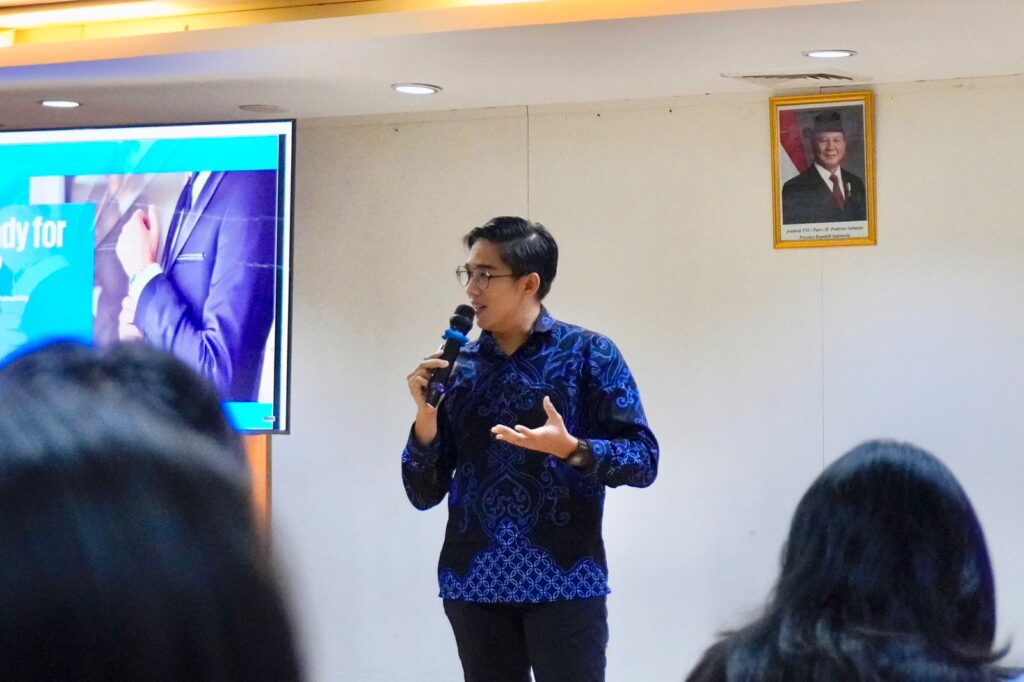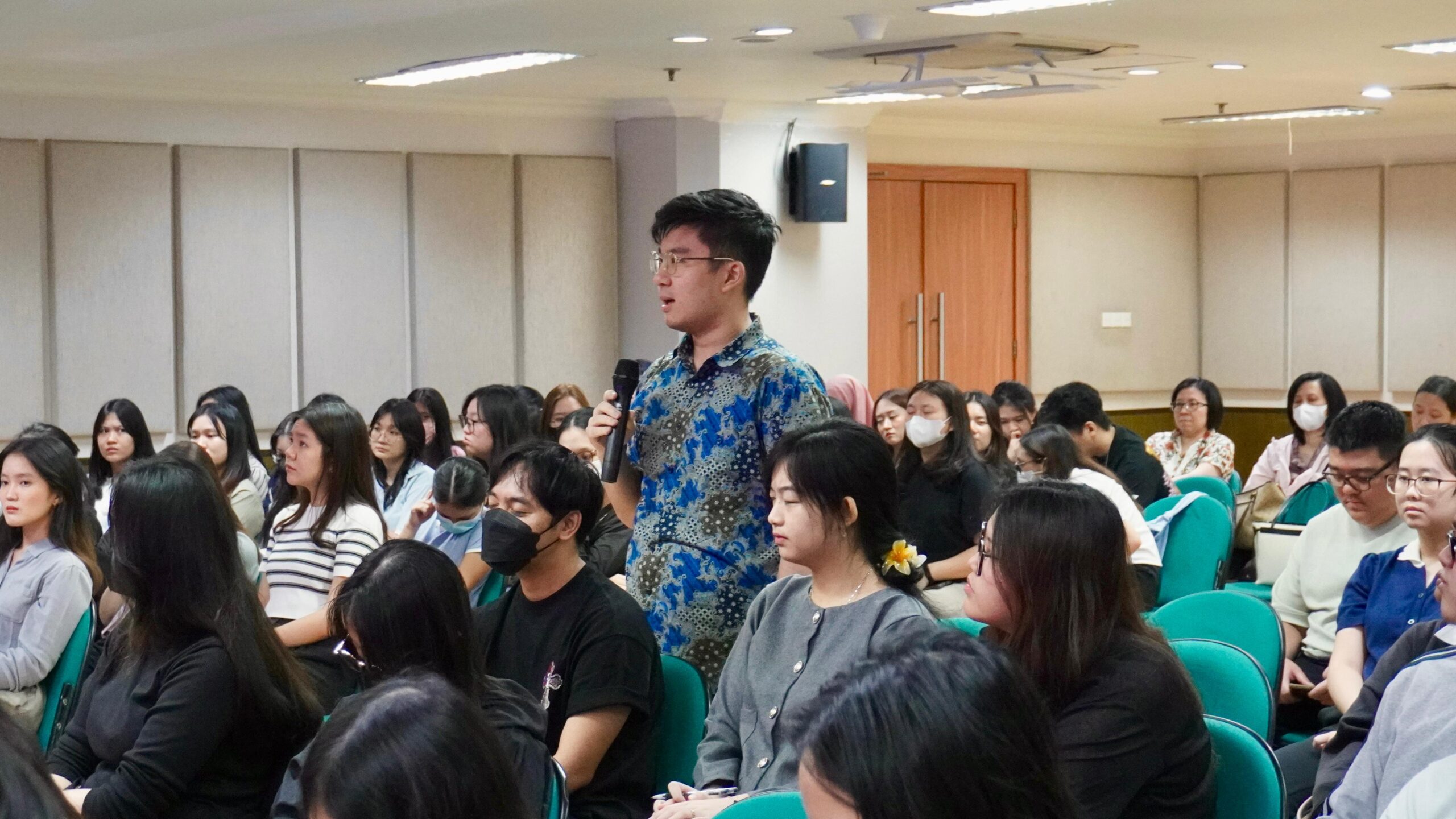Souce: FEB Untar
The rising global awareness of climate change issues, increasing investor demands for sustainable business practices, and the need for more specific standards in sustainability reporting have driven the creation of the International Standard on Sustainability Assurance (ISSA) 5000. This international standard was developed by the International Auditing and Assurance Standards Board (IAASB) as a guideline for accountants and auditors in providing assurance on sustainability reports. ISSA 5000 is important to discuss not only because it regulates financial aspects, but also because it emphasizes the responsibility of accountants in ensuring the quality of a company’s environmental, social, and governance (ESG) information, which is becoming increasingly relevant for the future.
This was explained by Angga Pujaprayoga, Audit & Assurance Director and ESG Assurance Leader of KPMG Indonesia, during his presentation on the introduction of ISSA 5000 at Untar Campus II on Friday, August 22, 2025. The seminar was organized by the Bachelor of Business Accounting Program, Faculty of Economics and Business (FEB) Untar, as part of its efforts to prepare students for the dynamics of global accounting profession standards.

Angga delivering his presentation // Doc: Untar Public Relations – CS
In his session, Angga explained that ISSA 5000 is an advancement of previous standards, namely the International Standard on Assurance Engagements (ISAE) 3000, which is general in nature, and ISAE 3410, which governs greenhouse gas assurance. However, these two standards do not specifically regulate sustainability reporting. ISSA 5000 was introduced to fill this gap while also responding to investor demands, which now extend beyond return on investment (ROI) to evaluating how companies manage environmental, social, and governance impacts.
Furthermore, Angga emphasized that ISSA 5000 will become the global standard for the preparation and assurance of sustainability reports, in line with the sustainability reporting standards issued by the IFRS Foundation, namely IFRS S1 (General Sustainability-related Disclosures) and IFRS S2 (Climate-related Disclosures). In Indonesia, these two standards will be adopted as Sustainability Reporting Standards (PSPK) 1 and PSPK 2, which will take effect starting in 2027. “ISSA 5000 emphasizes assurance ranging from limited to reasonable, covering both quantitative and qualitative disclosures, long-term projection analysis, and an understanding of the company’s internal controls,” he explained.
Although ISSA 5000 marks an important milestone in sustainability accountability, its implementation also presents several challenges. Companies are required to establish more transparent reporting systems, strengthen internal governance, and ensure that the sustainability data reported is truly credible.
The Head of the Bachelor of Business Accounting Program, Dr. Hendro Lukman, S.E., M.M., CPMA, CA, CPA (Aust.), CSRS, ACPA, emphasized that the introduction of ISSA 5000 is a strategic step for students to understand the new direction of the accounting profession. “With this standard, accountants are no longer sufficient with only an understanding of financial statements, but must also be able to provide critical insights into environmental, social, and governance issues. We hope Untar students will be ready to face these global challenges and become accountants who remain relevant in the future,” he said.
In line with this, the seminar not only served as a platform to introduce the new standard but also as a means to raise student awareness. As future accountants, they are expected not only to think technically but also to understand the social, environmental, and ethical implications of business practices.
(CS/YS)


